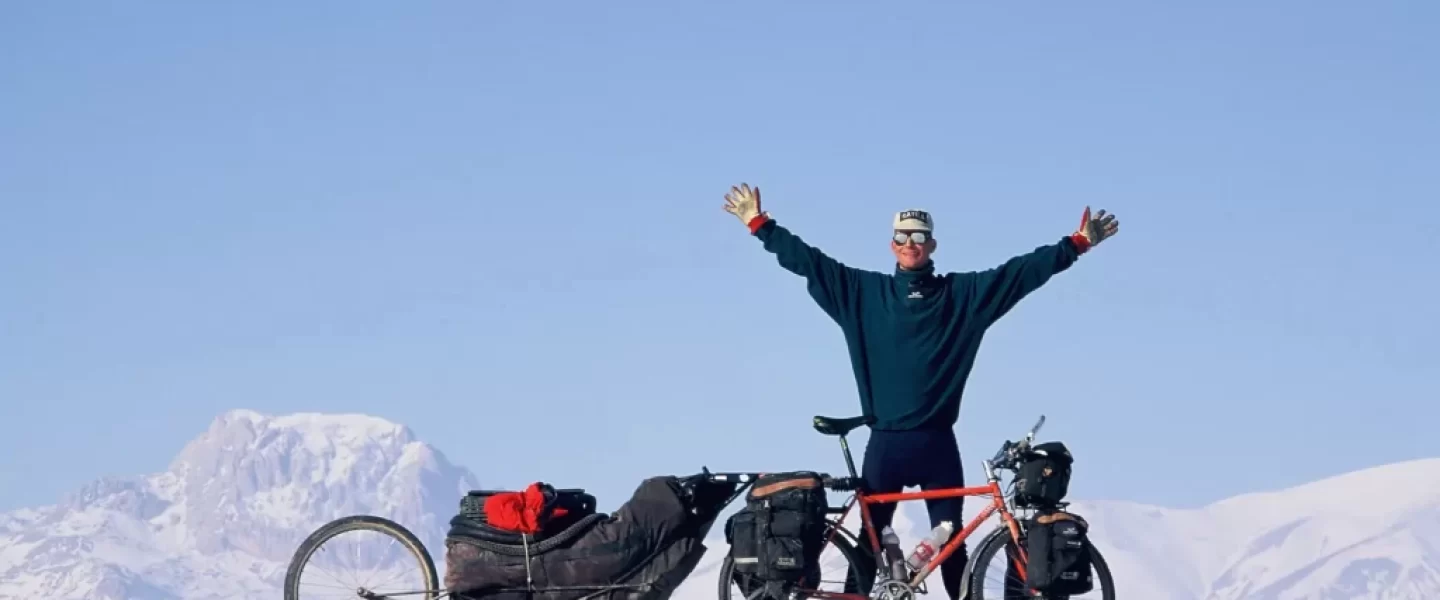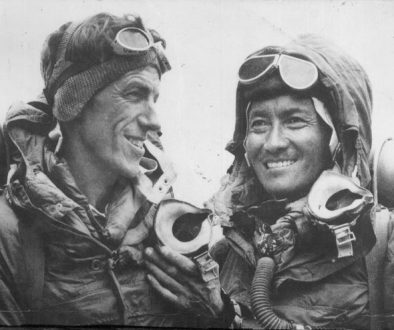In the world of adventure and extreme sports, few names command the same respect and admiration as Göran Kropp. Born in Sweden in 1966, Kropp’s life reads like an epic novel, filled with feats that seem impossible for the average human. What makes his story even more incredible is not just the heights he scaled—literally and figuratively—but the sheer self-reliance and grit he embodied throughout his life.
The Defining Journey: Cycling to Everest
One of the most iconic moments in Kropp’s career was his remarkable solo expedition to Mount Everest in 1996. But this wasn’t just another climb to the world’s highest peak. Kropp cycled over 13,000 kilometers (8,000 miles) from Sweden to Nepal, towing all his gear in a trailer. That journey alone would make most adventurers bow out, but for Kropp, it was just the beginning.
Upon arriving at the Everest base camp, Kropp attempted an oxygen-free ascent of the mountain, entirely unsupported. He reached within 100 meters of the summit during his first attempt but decided to turn back due to the dangerous conditions. Not one to give up easily, he rested, waited for better weather, and then, on May 23, 1996, successfully summited Everest without supplementary oxygen. All this after a self-propelled, solo journey from Sweden! And as if that wasn’t enough, he cycled back to Sweden after the climb. Yes, you read that right—back!
His Everest feat is a testament to what makes Göran Kropp so legendary: his unwavering focus on self-reliance and pushing the boundaries of human endurance.
Facing Nature Head-On: The Essence of Kropp’s Philosophy
Kropp’s incredible journey to Everest highlights more than just his physical strength; it showcases his philosophy towards life and adventure. Unlike many mountaineers who rely on extensive support teams, oxygen, and Sherpas to achieve their goals, Kropp wanted to strip adventure down to its purest form. His Everest expedition was about self-sufficiency, a daring bid to prove that humans, in their most basic form, could still conquer the natural world.
In an era where high-altitude mountaineering was becoming increasingly commercialized, Kropp stood out as a purist. He firmly believed in earning every step of the journey—whether it was pedaling across continents or summiting towering peaks. His efforts weren’t just about conquering mountains but about confronting his own limits and demonstrating the power of human will.
Not Just Everest: Other Notable Feats
While Kropp’s Everest journey is perhaps the most famous, it wasn’t the only daring adventure he undertook. Throughout his life, he scaled some of the world’s highest peaks, often with minimal gear or support. For example, in 1999, he and his fiancée Renata Chlumska attempted to climb K2, the second-highest peak in the world, again without supplemental oxygen. While they didn’t reach the summit, it was another testament to their relentless drive and spirit.
Additionally, Kropp was a passionate cyclist and outdoor enthusiast. His cycling trips across vast distances, often over some of the harshest terrain, showed that he wasn’t just a climber but an all-around adventurer who sought out challenges wherever he could find them.
A Tragic End to a Legendary Life
Sadly, Kropp’s life was cut short in 2002 while he was rock climbing in Washington state. At 35 years old, Kropp fell during an ascent and died instantly. His death was a shock to the adventure community, leaving a void that has yet to be filled. Kropp’s legacy, however, remains very much alive. He inspired countless individuals to push themselves, to pursue adventure not for fame or glory but for the thrill of truly living on the edge.
The Legacy of Göran Kropp
Kropp’s achievements aren’t just about the physical feats he accomplished. His approach to adventure, characterized by a minimalistic, self-reliant ethos, set him apart from other adventurers. He represented a dying breed of explorers who prioritized personal challenge over external recognition. Even in today’s world of tech-aided expeditions and guided tours, his story stands as a reminder that true adventure requires not just physical strength but also mental resilience and an unyielding spirit.
In many ways, Göran Kropp redefined what it means to be an adventurer. He wasn’t interested in taking the easiest path to the top—he was determined to earn every part of the journey, often in the most extreme and unconventional ways possible. His life story is a testament to the idea that the journey is just as important, if not more so, than the destination.
In the world of extreme adventuring, there may never be another Göran Kropp. His courage, tenacity, and self-reliance continue to inspire new generations of adventurers who seek to push the boundaries of what is possible.

